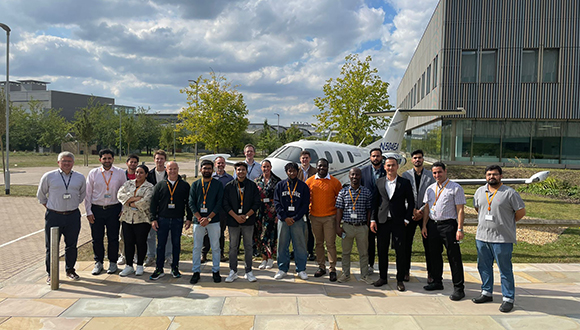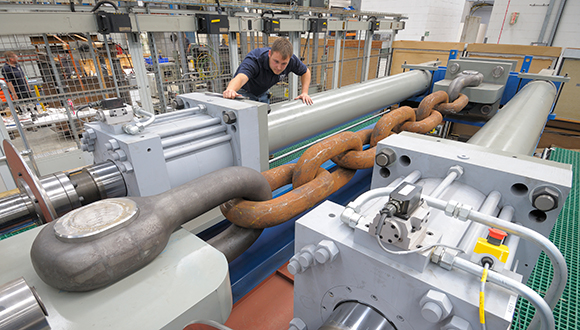Wed, 20 September, 2023
Brunel University London Welcomes New Cohort of Masters Students to NSIRC and TWI
Cambridge, UK - The National Structural Integrity Research Centre (NSIRC) and Brunel University London has kicked off its 2023/2024 academic year with a new cohort of Masters students. Lead academic partner and provider of industry-led MSc courses at NSIRC since 2015, Brunel University has educated over 130 engineering students from around the world at NSIRC, some of whom have gone on to study for a PhD within industry also at the centre.
Located at TWI, just outside Cambridge, the world-renowned city of academia, the new 23/24 cohort is split into three courses, namely the Oil and Gas Engineering MSc, Structural Integrity (Asset Reliability Management) MSc, and the newly introduced Lightweight Structures and Impact Engineering MSc.
Brunel University has been the lead academic partner of NSIRC since 2012, and the two institutions have collaborated over the years to deliver industry-focused MSc courses and PhDs in structural integrity and related topics. This partnership between industry and academia has led to a range of benefits, including an increase in expertise in essential areas such as the safety and reliability of assets, and ways to reduce carbon footprint. It has also prepared the next generation of engineers who can quickly identify and develop technology solutions.
 Brunel University London NSIRC Students, class of 2023/2024. Photo: TWI Ltd
Brunel University London NSIRC Students, class of 2023/2024. Photo: TWI Ltd
The research conducted by NSIRC and Brunel students has been recognised for its high impact and industry relevance. In 2018, a study conducted by Brunel and NSIRC alumna Natalia Garbán MSC CEng MWeldI, during her masters, was recognised through a conference paper award at the American Society of Mechanical Engineers (ASME) Pressure Vessels and Piping Conference in Prague, Czech Republic.
Natalia completed her MSc in Structural Integrity (Asset Reliability Management) at NSIRC and Brunel University London in 2017, and later joined TWI Ltd as a Project Leader in the Condition and Structural Health Monitoring Section (CSM). Her dissertation project investigated how the width of the weld and mismatch ratio affect the fracture toughness of metallic material. The project's aim was to determine whether the calculations supporting the standard BS EN were still valid. Today, she still works for TWI as a Public Funding and Project Manager Specialist.
Paul Sukpe PhD AMIMechE MASME MIAENG, another NSIRC and Brunel University alumni, joined the MSc in Structural Integrity (Asset Reliability Management) with the ambition to pursue industry-led academia. After graduating in 2020, Paul entered the NSIRC PhD programme with Brunel University and sponsorship from Lloyd's Register Foundation. His doctorate aimed to provide improved levels of toughness associated with loss of crack-tip constraint that would have significant advantages for safety cases involving components with defects. He was especially intrigued by the transferability of experimentally measured fracture toughness data to structural piping components to predict in-service residual and remaining life. Today, Paul is a Postdoctoral Researcher at Imperial College London.
The new cohort of Masters students for 2023/24 will benefit from Brunel University's practical and industry-focused approach to education and research. Through their shared history of industry and academic collaboration, NSIRC and Brunel University continue to provide cutting-edge research and education that has a positive impact across both industry and society as a whole.
This partnership provides an example of how essential education is for the development of new technologies and methods that will enhance the safety and reliability of assets while reducing environmental impact.
At NSIRC, industry and academia can collaborate to achieve a common goal. By doing so, they are preparing the next generation of engineers to tackle the challenges of a rapidly changing world.
 Fatigue test on high-strength steel mooring chain.Photo: TWI Ltd
Fatigue test on high-strength steel mooring chain.Photo: TWI Ltd